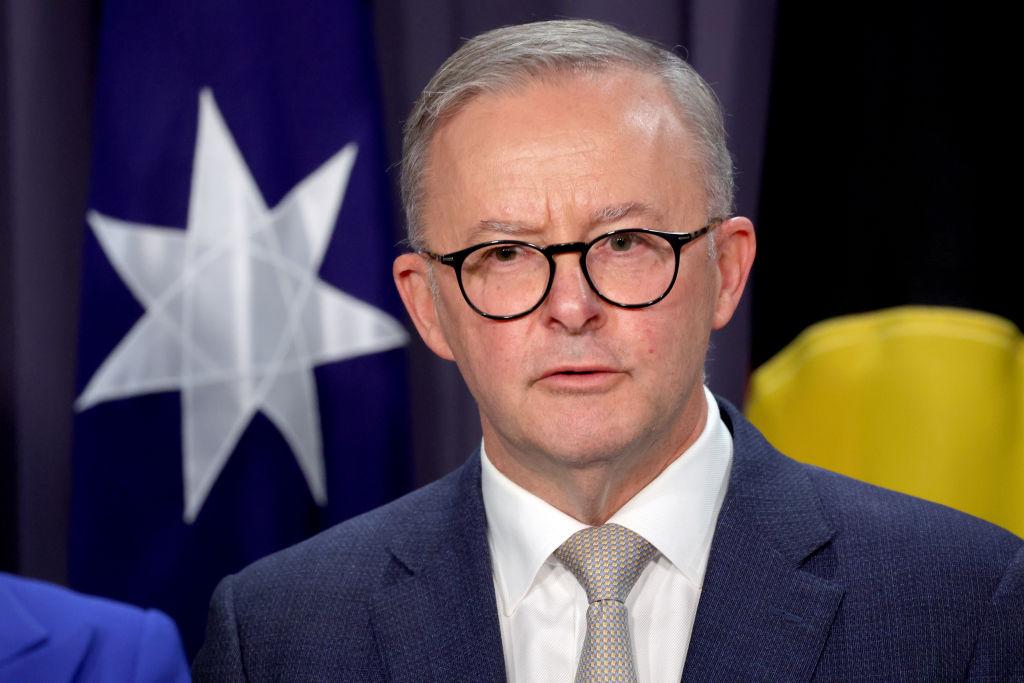
Prime Minister Anthony Albanese speaks during a press conference at Parliament House in Canberra, Australia, on May 23, 2022. David Gray/Getty Images
Labor’s hopes for majority government are now pinned on three electorates after a fourth lower house seat went to the Greens.
Australian Prime Minister Anthony Albanese on Saturday called last weekend’s election an “outstanding result” for the party.





